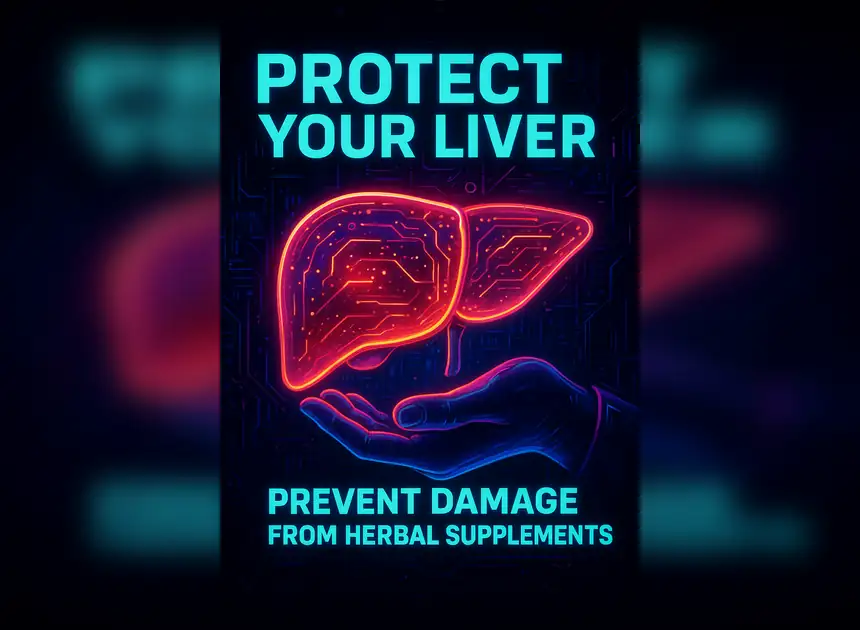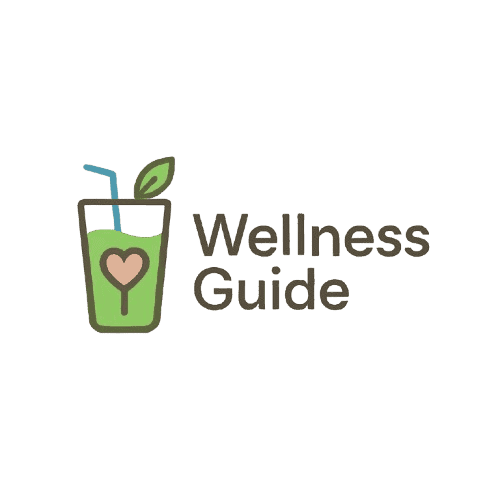
Prevent Liver Damage from Herbal Supplements
Learn which herbal supplements can harm your liver, why risks occur (contamination, dose, interactions, stress), and how to choose safe, third-party tested products. Includes red flags, monitoring advice, and when to consult a clinician.
Could the “natural” supplement you’re taking be silently damaging your liver?
Herbal products are often seen as harmless because they’re “natural,” but research shows that’s not always true. Several popular supplements — including turmeric, green tea extract, and ashwagandha — have been linked to elevated liver enzymes, hepatitis, and, in severe cases, liver failure. The risk increases with unregulated products, high doses, or combinations with prescription drugs. However, when herbal medicines are clinically tested, quality-controlled, and used under medical or herbal practitioner supervision, they can support liver health safely and effectively.
Read:Fatty Liver: Causes, Symptoms, Treatments & Liver Support
⚠️ Medical Disclaimer
This article is for educational purposes only and does not replace professional medical advice. Liver-related symptoms or supplement reactions require prompt medical evaluation.
If you are currently taking prescription medications or have any liver condition, consult a qualified healthcare provider or hepatologist before starting or stopping any herbal or nutritional supplement.
Risks of Herbal and Nutritional Supplements to Liver Health
Certain herbal and nutritional supplements — like turmeric, green tea extract, ashwagandha, and black cohosh — have been linked to hepatotoxicity, causing elevated liver enzymes, fatty liver changes, nausea, fatigue, and abdominal discomfort. In most cases, these symptoms improve once the supplements are stopped.
- Hepatotoxicity (Liver Injury) from HDS
Supplements like turmeric, green tea extract, ashwagandha, and black cohosh have been linked to acute hepatitis, elevated liver enzymes, and even liver failure. Often symptoms resolve when supplement use is stopped. [1] - Contamination & Adulteration
Herbal medicinal products (HMPs) are often contaminated with heavy metals (lead, arsenic, cadmium, mercury), undeclared pharmaceuticals, or microbes, causing unexpected liver damage. [2] - Mislabeling & Quality Variability
Many products are mislabeled or contain variable concentrations of active compounds. Unclear dosing or unknown ingredients increase risk.[3] - Dose & Duration Issues
High doses or long-term use of herbal extracts exceed what the liver can safely process—leading to oxidative stress or toxic metabolite buildup. [4] - Interactions with Prescription Drugs & Other Herbs
Herbal supplements can interact with medications, amplifying liver stress or reducing drug safety.[4] - Individual Susceptibility
Pre-existing liver disease, genetic factors, age, or other health conditions make some people more vulnerable.[5] - Risk of Acute Liver Failure & Need for Transplant
Some supplement-induced liver injuries become severe enough to require hospitalization, and in rare cases, liver transplantation.[6] - Carcinogenic or Chronic Damage from Toxins
Long-term exposure to aflatoxins (from fungal contamination) or heavy metals has links to liver cancer. [7]
Herbal Supplements & Liver Safety
🩺 Clinician’s Note: Discuss all supplement plans with your physician or certified herbalist—especially if you take prescription medications or have liver concerns.
To reduce your risk from herbal supplements, don’t rely on “natural” labels alone. Many herbal medicines can cause liver injury if contaminated, overdosed, or mixed with other drugs. Always choose third-party tested products (USP, NSF, or ConsumerLab certified), and avoid herbs with unclear sourcing or exaggerated “detox” claims. Use only under the guidance of a qualified herbal practitioner or healthcare provider to protect your liver health.
Read: Choose High-Quality Supplements: Labels & Third-Party Tests
Evidence-Based Risks of Herbal Supplements to the Liver
- Scientific reviews show many herbal products can interfere with drug metabolism and increase liver strain. For instance, St. John’s Wort induces CYP3A4, lowering the effectiveness of several medications (NCCIH). [8]
- High-dose green tea extract can reduce blood levels of drugs like nadolol and atorvastatin, altering their efficacy (NCCIH). [8]
- Common herbs such as garlic, ginger, turmeric, and ginkgo may amplify the effects of blood-thinners, increasing risk of bleeding (AAFP review).[9]
- Systematic reviews show over 80 herbs and 500 drugs have documented interactions, spanning cardiovascular, CNS, and immunosuppressant categories (overview SRs).[10]
- In clinical case reports, black cohosh has been linked to acute liver injury, enzyme elevations, and rare liver failure. [11]
- Stress and tension may also harm the liver—chronic stress raises cortisol, promotes inflammation, and contributes to fat buildup in liver cells. [12]
Read: Stress and Its Effect on Health: Best Multivitamin Timing
These adverse effects usually appear with high doses or prolonged use and often reverse upon stopping the herb. Risk escalates when products are unregulated, contaminated, or coadministered with other hepatotoxic agents.
Why “perfect safe herb + medication” is unlikely
- Herbs aren’t standardized like drugs: variability in strength, contamination, and quality is common.
- People metabolize herbs and drugs differently (age, liver function, genetics).
- Many interactions are understudied: data often comes from lab studies or case reports, not robust clinical trials.
Bottom line: even natural remedies can be harmful when misused. Treat claims like “this herb is totally safe with your meds” with skepticism; verify with reliable sources and consult your healthcare provider—especially if you take prescription medications. Prioritize third-party tested, certified products and professional guidance before starting any supplement to protect liver health.
Resources
- Turmeric, Other Popular Herbal Supplements May Be Damaging Your Liver , healthline
- Contamination and adulteration of herbal medicinal products (HMPs): an overview of systematic reviews , DOI: 10.1007/s00228-012-1353-z, PubMed
- The Contents of Herbal and Dietary Supplements Implicated in Liver Injury in the United States Are Frequently Mislabeled , journals.lww.com
- A comprehensive update in herbal and dietary supplement–induced liver injury , journals.lww.com
- 'Natural' Isn’t Always Safe: Reframing Herbal-Induced Liver Injury , medscape
- Severe liver injury due to herbal and dietary supplements and the role of liver transplantation , PMCID: PMC6920659,DOI: 10.3748/wjg.v25.i46.6704, PubMed
- Potential Hepatotoxins Found in Herbal Medicinal Products: A Systematic Review , MDPI
- NCCIH Clinical Digest , National Institutes of Health (NIH)
- Common Herbal Dietary Supplement–Drug Interactions , AAFP: American Academy of Family Physicians
- Herb-drug interactions: an overview of systematic reviews , PubMed
- LiverTox: Clinical and Research Information on Drug-Induced Liver Injury , National Institutes of Health (NIH)
- The Role of the Stress Response in Metabolic Dysfunction-Associated Fatty Liver Disease: A Psychoneuroendocrineimmunology-Based Perspective , PMC PubMed Central
How we reviewed this article
Sources
Our experts continually monitor the health and wellness space, and we update articles when new information becomes available.
Current Version
October 16, 2025
Written By
Nour Hany
Edited By
KirolosReda
Medically Reviewed By
Dr. Ahmed Mostafa Mostafa
Leave a comment
Your email address will not be published. Required fields are marked *

![Why Am I In A Calorie Deficit And Gaining Weight? [Fix]](https://wellness.culinarycreationss.com/storage/health-and-nutrition-1/why-am-i-in-a-calorie-deficit-and-gaining-weight-fix/4a48e795-580b-4097-aae8-42ae368bde7a.webp)
